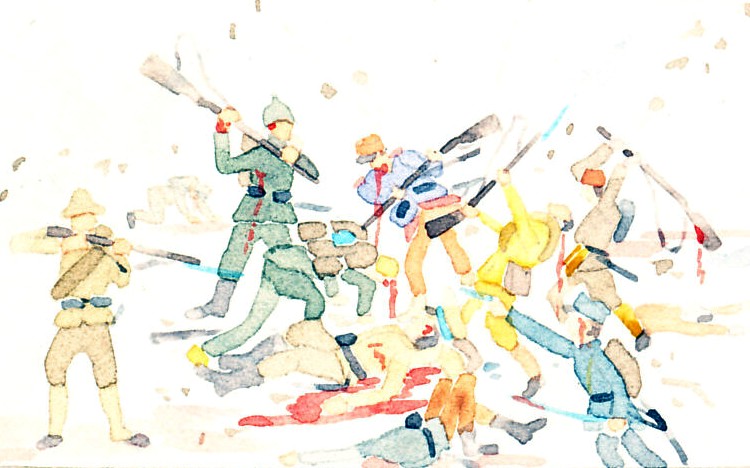Kaiser Wilhelm of Germany calls for God's judgement on 'the instigators of the World War' — the leaders of the Entente Allies — as the soldiers and civilians, the mourning and the wounded, of both sides plead for aid. At the center of the accused stands British Foreign Secretary Edward Grey. To the right kneels Serbian Prime Minister Pashitch with Crown Prince Alexander behind him. To the left Briand of France and Salandra of Italy.

Gottesgericht über die Anstifter des Weltkrieges.
Vom Oberkommando in den Marken, Berlin zur Veröffentlichung zugelassen am 24. Dezember 1914.
Vom Pressbureau des Kriegsministeriums genehmigt. Wien, 18. Januar 1915.
God's judgment upon the instigators of the World War.
Approved for publication by the High Command in the Marches District, Berlin on December 24, 1914.
Approved by the Press Bureau of the War Department. Vienna, January 18, 1915
Reverse:
Franz Heinrich, Kunstverlag, Berlin N 24, Oranienburger Str. 60/63. Gesetzlich geschützt. Nachahmung auf Grund des gesetzlichen Schutzes streng verboten.
F. Brückmann, Fl-G., München.
Franz Heinrich, Art Publisher, Berlin N 24, Oranienburger Str. 60/63. Protected by law. Legally protected against counterfeiting which is strictly prohibited.
F. Bruckmann, Fl-G., Munich.
Message and postmark July 13, 1915.
Other views:
Larger, Larger, Back
